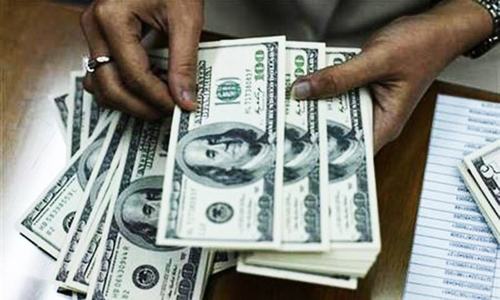KARACHI: The foreign direct investment (FDI) jumped by 17 per cent during December 2018, according to latest data released by the State Bank of Pakistan (SBP) on Wednesday.
The FDI increased to $319 million during December from $272.8m in the same month last year. Higher inflows during the month improved overall six-month FDI figures since total direct investment during July-Nov slumped by 35pc.
On a cumulative basis, the FDI during the first half (July-December) of 2018-19 fell by 19pc to $1.31 billion from $1.63bn recorded during the same period last fiscal year mainly concentrated in the oil and gas exploration sector, chemicals, power (thermal and hydel), construction sector and financial services.
However, total foreign investment during the first half of the fiscal year fell by a mammoth 77.2pc to $899.5m from $4bn last year attributable to an almost non-existent portfolio investment during the period under review.
Overall foreign investment plunges 77pc in first half of FY19
In line with the trend since the announcement of China-Pakistan Economic Corridor, China emerged as the leading investor in the country pledging $760m – making up for almost 58pc of the total investment during the six months — followed by UK with $116m. The wide margin reflects Pakistan’s increasing reliance on the Asian giant for its investment needs.
Despite making up for more than half of the total FDI, Chinese investments dropped by 31pc from the $1.1bn received last year. The drop is attributable to the slowdown in CPEC-related projects.
UK ranked second in the list of top investors as it invested $116m during the first half of the fiscal year with the US investing $54m, Japan $54m, South Korea $59.6m and Netherlands $53m.
On the other hand, Malaysian investments during the first half of fiscal year in the country dipped to $15m from the $133m last year.
The government is expecting large investments from Saudi Arabia, UAE and China. The government recently announced that Saudi Arabia is willing to invest up to $10bn in the country’s petroleum sector while UAE is also expected to invest $3bn.
The government has adopted a two-way strategy to improve its external account; increasing exports and attracting foreign investment in addition to increasing inward remittances from the Gulf economies. Prime Minister Imran Khan is scheduled to visit Qatar to pursue Doha to fulfil its promise of hiring 100,000 Pakistani workers.
Published in Dawn, January 17th, 2019















































